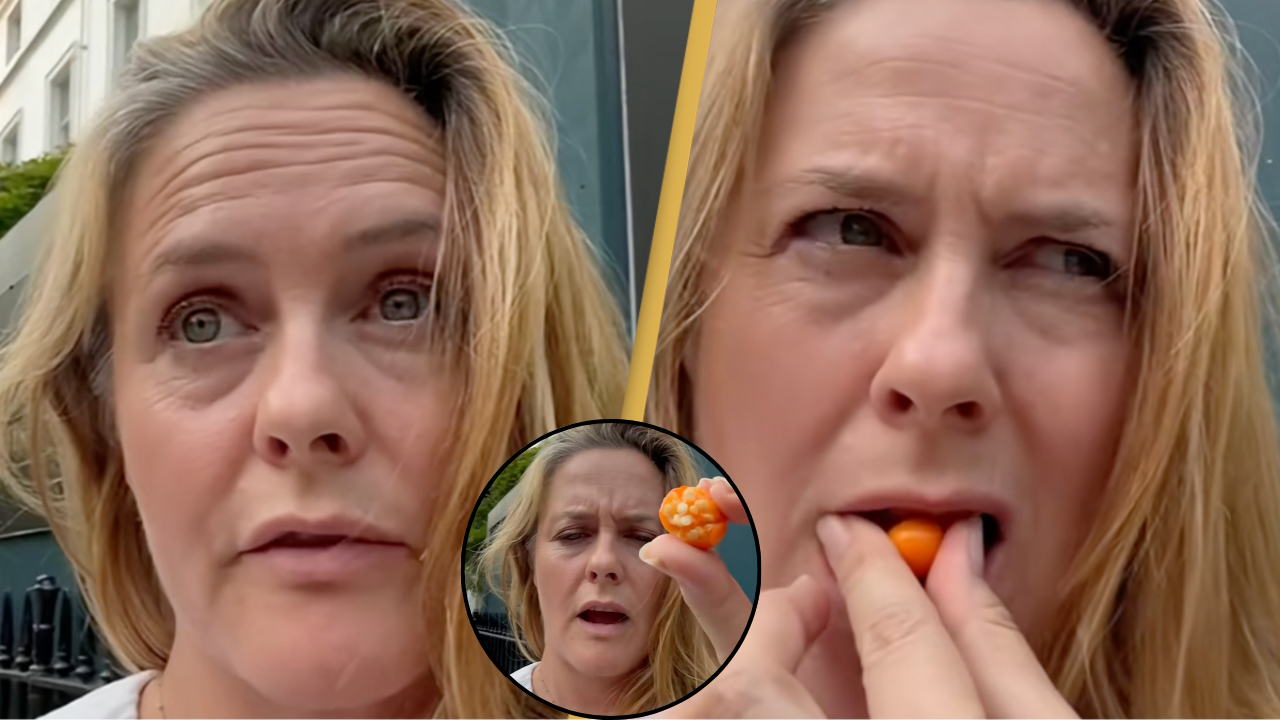Alicia Silverstone, a beloved actress known for her role in the iconic 1995 film “Clueless,” recently made headlines for an unexpected and alarming reason. During a visit to a public park in London, Silverstone unknowingly ingested a poisonous plant, leading to a health scare that serves as a stark reminder of the dangers lurking in our natural surroundings. This article delves into the details of this incident, explores the plant involved, and highlights the importance of awareness when it comes to plant safety.
In this Article :
Alicia Silverstone: A Hollywood Icon’s Unexpected Health Scare
Alicia Silverstone has long been celebrated for her contributions to the entertainment industry, with a career spanning over three decades. However, her recent experience in London has brought her back into the spotlight for a very different reason. While taking a leisurely stroll through a popular London park, Silverstone encountered a plant that would soon wreak havoc on her health. The plant in question, later identified as Aconitum, commonly known as monkshood or wolfsbane, is one of the most toxic plants found in nature.
The Dangers of Aconitum: A Plant to Be Feared
Aconitum, often referred to as monkshood due to the shape of its flowers, is a highly poisonous plant that has been responsible for numerous accidental poisonings throughout history. This plant contains alkaloids, such as aconitine, which are potent neurotoxins. Even a small amount of ingestion or contact with the skin can result in severe symptoms, including nausea, vomiting, abdominal pain, dizziness, and in extreme cases, cardiac arrest.
Silverstone’s encounter with Aconitum serves as a stark reminder of the dangers posed by seemingly innocuous plants found in public parks and gardens. The plant’s attractive appearance belies its deadly nature, making it a potential hazard for unsuspecting individuals.
Alicia Silverstone’s Ordeal: From Park to Hospital
After consuming a small portion of the Aconitum plant, Silverstone began experiencing symptoms that quickly escalated in severity. Initially, she reported feeling lightheaded and nauseous, but these symptoms soon progressed to intense abdominal pain and muscle weakness. Realizing the seriousness of her condition, Silverstone was rushed to a nearby hospital, where she received immediate medical attention.
Doctors at the hospital quickly identified the cause of her symptoms and began administering treatment to counteract the effects of the poison. Fortunately, Silverstone’s swift response and access to medical care likely saved her life. She remained under observation for several days, during which time she was closely monitored for any further complications.
The Importance of Plant Awareness: A Lesson for All
Alicia Silverstone’s experience underscores the importance of being aware of the plants that surround us, particularly when spending time in unfamiliar environments. Many people are unaware of the potential dangers posed by toxic plants, and incidents like this highlight the need for greater education and awareness.
Public parks, while beautiful and often filled with a wide variety of plant life, can harbor hidden dangers. Visitors should exercise caution, especially when children or pets are present, as they are more susceptible to accidental ingestion. It is essential to familiarize oneself with common poisonous plants and to avoid touching or consuming any plant material unless absolutely certain of its safety.
How to Stay Safe: Tips for Preventing Plant Poisoning
- Educate Yourself: Learn to identify common poisonous plants in your area. Familiarize yourself with their appearance and the symptoms of poisoning.
- Avoid Touching Unknown Plants: If you are unsure about the safety of a plant, avoid touching or handling it. Some plants can cause skin irritation or poisoning through contact alone.
- Keep a Safe Distance: When exploring parks or gardens, keep a safe distance from unfamiliar plants. This is especially important for children and pets, who may be tempted to touch or ingest plants.
- Know the Symptoms of Poisoning: Be aware of the symptoms of plant poisoning, which can include nausea, vomiting, dizziness, abdominal pain, and difficulty breathing. If you suspect someone has ingested a poisonous plant, seek medical attention immediately.
- Seek Professional Help: If you encounter a plant that you cannot identify, consult with a botanist or a professional in plant safety. They can provide valuable information on potential hazards.
Alicia Silverstone’s Recovery and Message to the Public
After several days in the hospital, Alicia Silverstone was discharged and is now recovering at home. In a statement released through her publicist, Silverstone expressed her gratitude to the medical team that treated her and urged the public to be more aware of the plants in their environment. She emphasized the importance of educating oneself about plant safety and encouraged others to take precautions when exploring nature.
Silverstone’s ordeal has sparked a renewed interest in plant safety, with experts calling for increased public awareness and education on the subject. While the incident was undoubtedly a frightening experience for the actress, it has also served as a valuable lesson for others.
The Hidden Dangers of Nature
Alicia Silverstone’s encounter with a poisonous plant in London is a sobering reminder that nature, while beautiful, can also be dangerous. The incident highlights the importance of plant awareness and the need for caution when spending time outdoors. As we continue to enjoy the natural world, let us do so with a greater understanding of the potential hazards that may be lurking beneath the surface.
